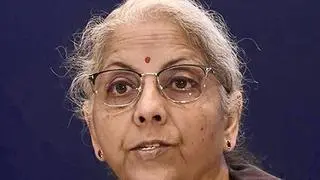Mr Herman van Rompuy, the mild-mannered President of the European Council, is a man whose words matter. The former Belgian premier is the first permanent president of the 27-nation group (not to be confused with Mr Jose Manuel Barroso, President of the executive body, the European Commission) and is tasked with the ambiguous job of co-ordinating the often-competing agendas of the heads of state that make up the council. So, his first major speech of the year, which took place in London this week, provided an important snapshot of the agenda for the year ahead for an economic region recovering from a turbulent 2010.
Of course, like other prominent members of EU institutions, Mr van Rompuy was keen to reassure the markets, that despite problems in some countries, the outlook was encouraging for the year ahead. Encouragingly, domestic demand was playing a more and more important part of the growth story, indicating that it was self-sustaining, he said.
However, it was the topic of greater economic convergence within the European Union that he devoted much of his time to. Co-ordination of policy matters such as tax regimes, and pension reform, would contribute to a stronger and more credible economic pillar, he said. “The Eurozone countries can and must develop a convergence of their economic policies,” he added. “We must pull in the same direction.”
Latest developments
While much of the market is focused on the latest developments with Portuguese or Spanish bonds (the latest auction of Portuguese government debt passed relatively smoothly despite market fears that yields would exceed a crucial 7 per cent level widely seen as a trigger for an EU-IMF aid package), within the political community much of the debate centres on the need for greater co-ordination on economic matters.
Earlier this week, the French President, Mr Nicolas Sarkozy, sharply criticised the Irish Government for failing to raise its corporate tax rate, despite the IMF-EU bailout package it had received. “One cannot talk about economic integration without convergence of fiscal systems,” he said. Late last year, he and German Chancellor Ms Angela Merkel raised the possibility of harmonising tax and labour policies within the region, arguing that the crisis had put the need for such agreement into sharp relief.
The first step towards greater coordination has already been taken, via the ‘Economic Semester' approved by member states last September. In a nutshell, it will provide a mechanism by which member states will place their draft budgets to the EU institutions before they go before their own legislative assemblies, providing an opportunity for other member states to provide policy inputs.
At the start of the year, the Commission will publish its Annual Growth Survey, identifying challenges within the area, on the basis of which member states will draw up medium-term budgets and reform agendas. Based on this, the Commission will issue country-specific guidance, as well as providing guidance as countries set their annual budget. Significantly, those who don't comply could be the subject of sanctions, should a majority of member states agree to them.
“If this had been in place before, a lot of trouble could have been prevented,” said Mr van Rompuy.







Comments
Comments have to be in English, and in full sentences. They cannot be abusive or personal. Please abide by our community guidelines for posting your comments.
We have migrated to a new commenting platform. If you are already a registered user of TheHindu Businessline and logged in, you may continue to engage with our articles. If you do not have an account please register and login to post comments. Users can access their older comments by logging into their accounts on Vuukle.